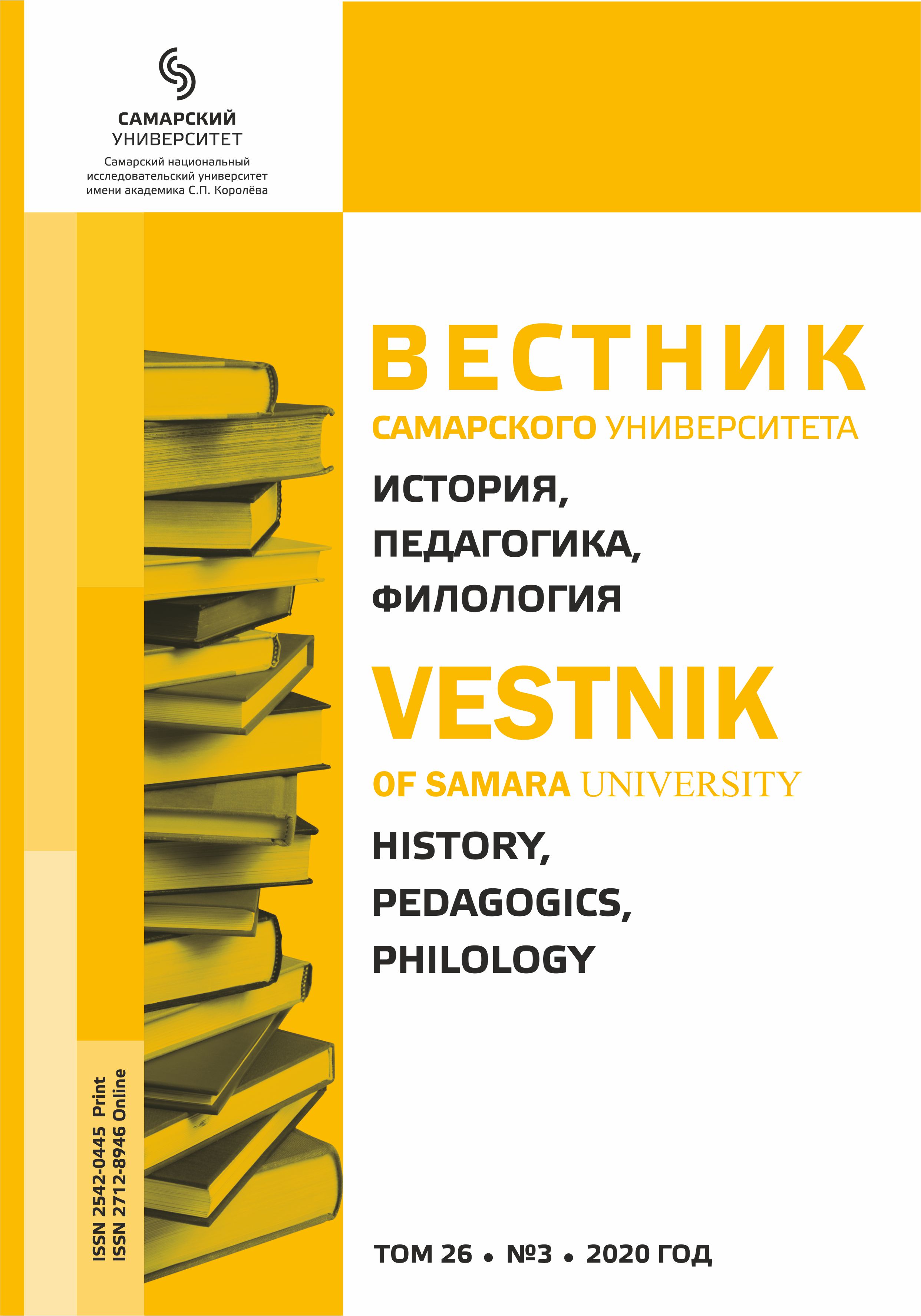Abstract
The intercultural project was executed by the German department of Samara State University of Social Sciences and Education together with colleges from the Ludwigsburg Pedagogical Institute (Germany). We have realized the Project in two directions: as a compact seminar for German and Russian students and as professional development for Russian teachers of German. In the paper I analyze a new research subject: the arts of reflective discourse during activities in foreign language. I observe two arts of reflective discourse: one of them is setting perspective and another one gives reflectional estimate. I develop the conception of role subject in the intercultural discourse. The main consideration is given to criterions that distinguish discourse analyze from text analyze, that are categories of subject and its role status and relationship between discourse formations. In discourse formations I find out conceptual dominants that I determine by the frequency of their representants. I also find out language expressional reflecting means by Russian and German role subjects and compare estimating utterances from the viewpoint of intercultural differences. As research material I use hand made notes of oral utterances done by role subjects (moderators and learners) to set perspective or to give reflectional estimate as well as 28 written reflectional texts of students and teachers. The findings of my research show distinctive features of reflectional discourse in intercultural project activities: their direction to own activities and to activities of learners; broadening of learner’s activities who form recipient’s expectations in perception of project products; implicit retrospective character of prospective discourse formations that summarize preliminary work concerning the project; the possibility of written hold of estimated opinions and of comparison of their content and language appearance in discourse formations; dominant estimating concepts of intercultural project by role subjects.













